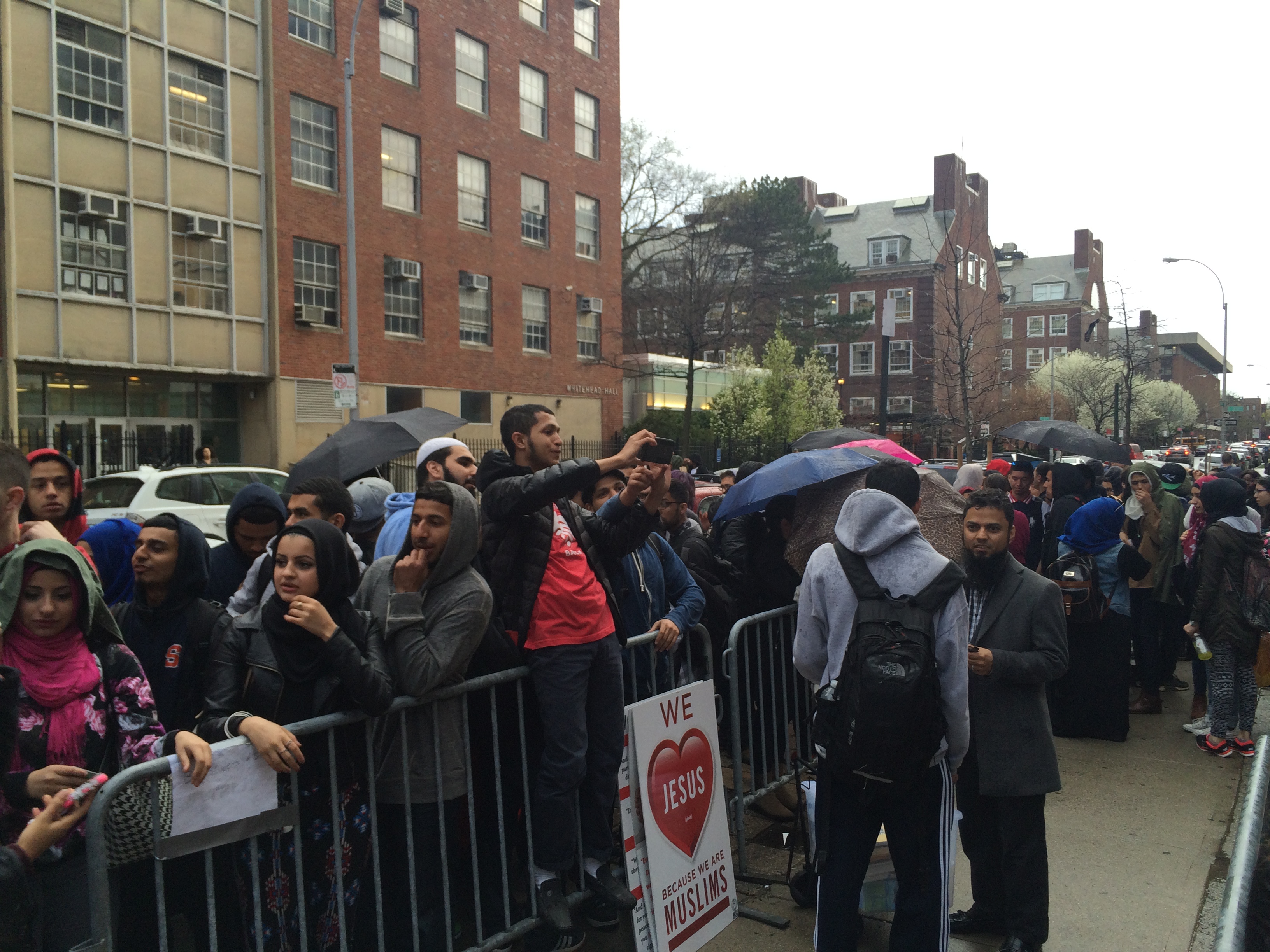By Faraz T. Toor
Published: September 16th, 2015
Administration is implementing a $30,000 cap on additional security for student-hosted events in the 2015-2016 academic year that are open to the outside public, Brooklyn College told club leaders.
Christina Waszak, the Associate Director of Student Activities, wrote in an email to student clubs on September 9 that the college will only cover up to $30,000 in extra security for all student-hosted public events.
“I would hate to tell a club that wants to host an event that they can only have six events because of a cap,” says CLAS Assembly Speaker Jake Levin.
Brooklyn College events that are open to the public require security, unlike ones that only allow students to attend. A privately funded event, like the Pamela Geller lecture this past April, would not count towards the $30,000 cap if the funder pays for security.
CLAS Student Government says that because the City University of New York (CUNY) has only recently informed colleges about the cap, policy regarding how Student Affairs and Student Activities will implement it is still undetermined.
One such policy question is whether the college will assign specific clubs a higher individual cap for security costs, or if each club will be held to the same ceiling.
An equal blanket cap for each club—which college administration members suggested in a meeting with CLAS President Tim Donnelly, SGS President Adam Zauderer, and Graduate Student Organization (GSO) president Omari Williams on the first day of classes—is something that Levin and Donnelly oppose because not every club utilizes additional security in identical ways.
For example, in the past two years, Students for Justice in Palestine (SJP) has hosted multiple events open to the public that have required added security, such as the Boycott, Divestment and Sanctions (BDS) lecture it helped organize February 2013. During that same time, however, other clubs have not hosted any public events.
“There’s a famous saying: ‘Fair is not equal; fair is what everyone needs,’” says Levin. “That completely applies here.”
CLAS Student Government says that it will try to cover any costs that clubs’ individual security ceilings do not cover, through the Assembly’s budget, or, if necessary, via its emergency budget. Donnelly estimates that the number for the emergency budget will be about $100,000, though CLAS isstill waiting for the audit to be completed.
According to Donnelly, CLAS Student Government’s Budget and Finance Committee can fund clubs on its own for up to $500 per expenditure. However, if any costs were to exceed $1,200, the Brooklyn College Association, which is made up of Donnelly, other student leaders, and college administration, would determine whether to approve any funding.
Overall, Donnelly wants to analyze clubs’ needs on a case-by-case basis. “We’re going to make sure the clubs get what they need,” he said.
According to CLAS Student Government, the CUNY-wide cap is one that the university determined based on costs for additional security for student events in the last academic year.
The other factor in CUNY’s decision to set a security cap was its smaller budget. While the state has allocated more money to CUNY in the Fiscal Year 2015-16 State Enacted Budget, the university argues that this did not include funding for “$51 million of University-mandatory cost increases, including those associated with fringe benefits, contractual salary increments, energy, and building rental costs.”
CUNY says that this funding shortfall will require it to reallocate funds from other areas of its budget and enact “significant reductions in non-personnel budgets.”
Jason Carey, the Assistant Vice President of Marketing, Communications and Public Relations, did not have further comment on the security cap and saysthat Waszak’s message was clear about why it was implemented.
Additional reporting by Radhika Viswanathan

